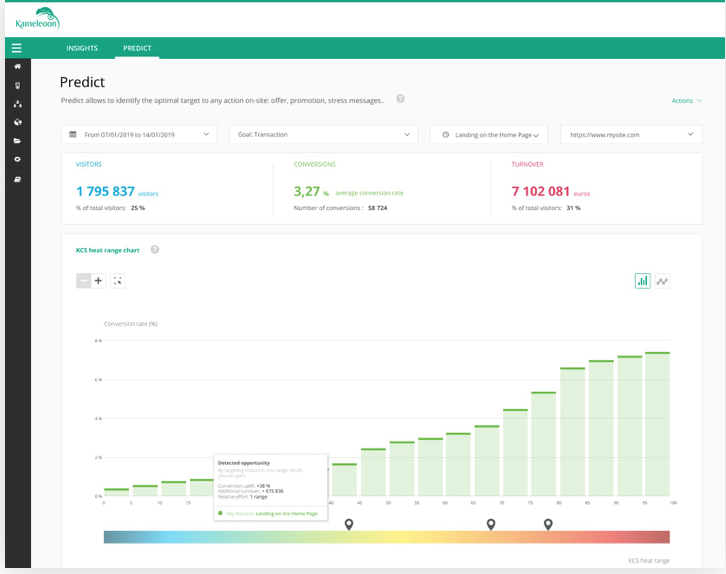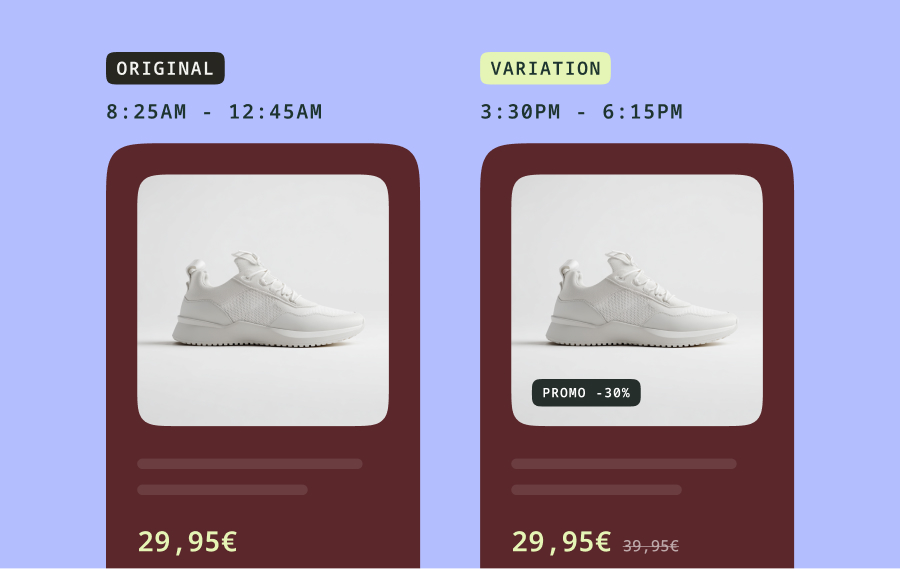Why AI makes the human touch even more important in personalization

Over the last few years we’ve seen an accelerated rise of artificial intelligence in our daily lives. Many of us now have smart home devices, such as Amazon’s Alexa or Google Home, use the likes of Siri on our smartphones to carry out routine tasks quickly and easily or interact with chatbots online when asking for information from brands. AI is vital behind the scenes as well - for example, Facebook uses it to automatically recognize and tag individuals in photos on its platform.
AI has also had a major impact on digital marketing, enabling brands to personalize the content and offers consumers receive online based on individual interests or behavior, thus delivering a tailored, relevant experience. It also enables brands to analyze the growing volumes of data now available on consumers and to use this insight to drive better decision making.
1 The importance of creating balance between AI personalization and consumer needs
An increasing need to protect consumer data
While consumers like the benefits of personalization, they are increasingly protective over their personal data. That’s one of the reasons that new regulations, such as the CCPR and the GDPR, have been introduced to provide consumers with increased control over how their personal data is used and protected.
Greater consumer expectations around personalization
What is needed is a balance between delivering the personalized experience that consumers demand and respecting their rights. Personalizing the experience is one of the biggest challenges that marketers face online, due to its complexity and the difficulty of understanding consumer needs and responding quickly in order to meet them. Demonstrating this, 98% of visitors leave a site without buying/converting, in contrast to a physical shop, where a skilled shop assistant can deliver a personalized service based on their knowledge of consumer behaviour, greatly increasing conversion rates.
How AI can provide the balance between privacy and personalization
AI enables brands to understand and measure the conversion probability of every individual visitor, in real-time, and thus automate the delivery of a personalized experience that completely matches their buying intent. Without it, it is simply impossible to analyze these vast amounts of data that visitors provide through their behavior in real-time at an individual level.
However, the rise of AI has led to fears from marketers that their jobs will be automated and from consumers that they will lose control of what they see and the offers they receive.
2 Why AI alone is not enough to optimize personalization
To overcome these fears and ensure you deliver an optimized experience you need a balance of humans and AI within personalization, as this blog will discuss.
The 3 limits of AI in personalization
Brands cannot simply hand over personalization to machines for three main reasons:
- You need to rely on the human touch to set your strategy and design your personalization campaigns, such as what activities are triggered for specific visitors when they meet set criteria.
- Successful personalization also requires transparency to monitor and report on what actions have been taken on behalf of the brand, when and why.
- To achieve optimal ROI you need to have control - otherwise actions taken by AI might not meet your overall strategy and objectives.
Read our blog on how to achieve this here.
All of this means you need to bring both human marketers and AI together, combining their strengths to achieve optimal results.
,
How AI works with personalization
Machine learning (ML) is at the heart of AI personalization. ML works by analyzing large amounts of data and then creating rules based on the patterns it finds in this data. It then applies these rules as algorithms on new data, improving its predictions as it goes. The key thing is that it learns itself, which makes it extremely powerful – you feed it data in order for the system to self-train.
With AI personalization, systems essentially analyze data around customer behavior to predict what consumers are likely to do - customer intent. This can be “hot” data that is being collected about what they are currently doing on the website, or existing “cold” data which covers what you know about them, from systems such as CRM. The aim is simple - to increase conversions by offering visitors the information and experience that best matches their intent.
,
3 The benefits of AI for personalization projects
All of this means that AI delivers benefits in specific areas and essentially enables you to automate your activities in new ways that would be impossible or overly time-consuming if left to humans alone. These include being able to:
- Analyze enormous amounts of data from multiple, disparate sources, some of which is unqualified, all in real-time.
- Better understand intent by analyzing diverse, smaller signals for links that may not be visible to the human eye, therefore moving beyond segmentation. There may be many hundreds of these micro signals that impact intent, all interacting in complex ways.
- Operate consistently 24/7, serving the hundreds of thousands/millions of visitors that large sites receive
- Triggering individualized versions of digital experiences at scale, given that creating this number of versions would be impossible to manage manually. For example, if you personalize three different elements in a popin with two variations for each of then you'd have to manage eight personalizations manually. The number of variants grows exponentially the more elements you personalize.
- Act quickly - visitors spend a shrinking amount of time on your site before they leave. Kameleoon Predict can calculate the likelihood of conversion in just 15 seconds, identifying the visitors that have intent and enabling you to target them accordingly.
4 The benefits of human skills for personalization projects
In comparison humans bring a different set of skills to personalization, complementing the automated, scalable capabilities of AI. For example:
- Humans understand the bigger strategic picture and corporate/marketing goals. Their input ensures you operate within these objectives, whether they are to focus on specific products, ranges or goals such as increasing average basket size or return purchasers. This knowledge enables them to set the right actions to be triggered when criteria around intent are met, protecting your brand and its reputation.
- Humans have creativity. While AI can identify the need for personalization for a group, it cannot create the optimal personalization that is triggered. It is up to humans to create and test personalizations that will actually convert visitors
- Unlike machines, humans have empathy. Through research and experience marketers understand their customers and what they are looking for, their needs and wants. You cannot get this depth of understanding from AI.
5 Achieving a balance between AI and the human touch with a personalization platform
Taken together this demonstrates the need for a balance - between human marketers and technology within personalization. The perfect example of this is within the Kameleoon Conversion Score™ (KCS™). This uses AI to calculate the likelihood of a visitor converting, expressed as a number between 100 (highest chance) down to 1 (lowest chance).
This is then displayed graphically, making it simple to understand. Particular ranges (such as between 40-45 in the graphic below) that show the greatest potential are flagged, giving marketers the insight they need to create and deploy relevant personalizations to reach this group effectively.

AI is vital to deepen personalization and help you understand how your visitors individual intent evolves in real-time, but on its own it cannot fully meet your objectives. You need to marry it to the creativity of human marketers to achieve its full potential and to maximize your ROI and revenues.





